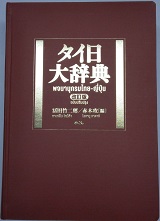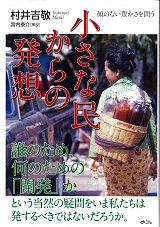・読者登録
・団体購読のご案内
・「編集委員会会員」を募集
橋本勝21世紀風刺絵日記
記事スタイル
・コラム
・みる・よむ・きく
・インタビュー
・解説
・こぼれ話
特集
・アジア
・農と食
・人権/反差別/司法
・国際
・イスラエル/パレスチナ
・入管
・地域
・文化
・欧州
・市民活動
・検証・メディア
・核・原子力
・環境
・難民
・中東
提携・契約メディア
・AIニュース


・司法
・マニラ新聞

・TUP速報



・じゃかるた新聞
・Agence Global
・Japan Focus

・Foreign Policy In Focus
・星日報
Time Line
・2025年04月01日
・2025年03月31日
・2025年03月30日
・2025年03月29日
・2025年03月28日
・2025年03月27日
・2025年03月26日
・2025年03月23日
・2025年03月22日
・2025年03月21日
|
|
2007年06月25日15時53分掲載
無料記事
印刷用
時事英語一口メモ
【29】「円キャリートレード」とミセス・ワタナベ
<A href="http://jijieigo.at.webry.info/200804/article_25.html" target="_blank">ブログ版</A>
財務省の渡辺博史財務官の片言隻語は国際経済通信社が速報する。財務官は財務省の官僚No.2。英語の肩書きは、vice finance minister for international affairs。”Japan’s top currency diplomat”(日本の首席通貨外交官)の発言は為替相場を動かす。しかし、最近相場を動かしているのはMr. Watanabeではなく、Mrs Watanabesであるようだ。(鳥居英晴)
外国為替市場(Forex)で円の独歩安が続いている。低金利で調達した円を売って、高金利通貨で運用する”yen carry trade”(円キャリートレード)が加速しているためだ。
英紙デーリー・テレグラフ(6月4日)の “From a free lunch to a possible threat to global credit markets”(世界金融市場への無料ランチからありそうな脅威まで)という見出しのAmbrose Evans-Pritchardによる記事は、円キャリートレードの問題を報じている。その中に次のような一節があった。
Less sticky is the money moved around by the army of day-trading housewives and grannies, the proverbial "Mrs Watanabes" who play the futures markets while their "salary men" drink sake with clients until midnight.
(サラリーマンが夜中まで顧客と酒を飲んでいる間、先物市場に手を出している「ミセス・ワタナベ」と知られているデイトレーディングの主婦やおばあちゃんたちが動かしている金は、それほど長期運用ではない)
日本の年金ファンドや保険会社は長期運用をするが、ヘッジファンドや銀行はすぐにポジションを解消する。”Mrs Watanabes”はその中間にあるということを言っている。"Mrs Watanabe"とは、日本の一般の主婦投資家を指している。例えば、英誌エコノミスト(1997年3月27日)では次のように使われている。
With short-term interest rates virtually nil and bonds yielding not much more, Mrs Watanabe, the ubiquitous Japanese housewife who controls the family finances, has been getting more daring in her investment habits.
(短期金利が事実上ゼロで、債券利回りも極めて低い中、家庭の財布を握る日本のどこにでもいる主婦のミセス・ワタナベの投資習慣はより大胆になりつつある)
フィナンシャル・タイムズ紙でMrs Watanabeを検索すると、“Mrs Watanabe, the archetypal Japanese saver”(典型的な日本の貯蓄家)、“Mrs Watanabe, who holds the family purse strings in Japan”(日本の家庭の財布のひもを握る)、“Mr and Mrs Watanabe”などの表現が出てくる。
エコノミスト誌(1992年11月)にBritain's Aunt Agathas and Japan's Mrs Watanabesという表現があり、“Mrs Watanabes“は英国のAunt Agathas(アガサ叔母)の日本のcounterpartに当たることが分かる。
Wikipediaによると、Aunt Agathaは英国の作家P.G.ウッドハウスの作品の登場人物。Triviaとして、次のような説明がある。
"Aunt Agatha", or "Great Aunt Agatha", is a term sometimes used somewhat disparagingly by workers in the City of London's financial markets to describe a risk-averse, low-volume, non-corporate investor.
(ロンドンの金融市場で働く人たちが、リスクを避ける、小額の法人投資家でない人たちをいくぶん軽べつ的に指すときに使う言葉)
なせ“Mrs Watanabe”が日本の主婦投資家を指すようになったのかは分からない。
テレグラフのEvans-Pritchardの記事は、さらに次のように続けている。
Bears see the carry trade as a sword of Damocles hanging over global credit markets, threatening to pop the financial bubble at any moment.
(弱気筋は、キャリートレードをいつはじけてもおかしくない金融バブルとして世界金融市場の上にかかるダモクレスの剣と見なす)
It has certainly been the closest thing to a free-lunch in global capitalism over the last six years, although Chinese reserve hoarding ($1,200bn) has pulled ahead as an even bigger source of liquidity fuelling global asset markets.
(キャリートレードは過去6年間、世界資本主義での無料ランチに一番近いものであった。もっとも、1兆2000億ドルの中国の外貨準備は世界の資産市場の流動性に拍車をかけている点ではそれ以上だが)
先進国の中ではアイスランドに次いで金利が高いニュージーランドは、円キャリートレードの標的になっている。ニュージーランド準備銀行(中央銀行)6月11日、1985年に変動相場制に移行して以来初めて、NZドル売りの為替介入を行った。
同記者の6月13日の記事の見出しは、“Speculators caught out as Kiwis strike against carry trade”(投機家つかまる。ニュージーランド、キャリートレードを攻撃)。
New Zealand has taken the drastic step of currency intervention to drive down the soaring kiwi dollar, giving a bloody nose to speculators playing the "carry trade" at the country's expense.
(ニュージーランドは高騰するNZドルを抑えるために為替介入という思い切った措置に踏み切り、キャリートレードをしている投機家に打撃を与えた)
New Zealand is overheating as a result of the commodity boom and now has 8pc interest rates, making it a favourite pick for carry trade investors who can borrow cheaply in Tokyo.
(ニュージーランドは商品ブームの結果、過熱しており、金利は8%で、東京で安く金を借りられるキャリートレード投資家の格好の標的になっている)
Hedge funds have led the charge but Japanese households have also jumped on the bandwagon, buying uridashi bonds, which are denominated in currencies other than the yen, to harvest extra yield.
(ヘッジファンドは攻撃の先頭に立っているが、日本の個人投資家も加わり、儲けを得ようと外貨建ての売り出し債を買っている)
しかし、ニュージーランド中銀の介入の効果は限定的で、NZドルはその後、最高値を更新した。同記者の記事の6月19日の見出しは”Japanese grannies trounce Kiwi bank”(日本のおばあちゃん、ニュージーランド中銀を打ち負かす)というもの。
Japan's day-trading grannies and housewives have overwhelmed New Zealand's central bank, driving the Kiwi dollar to record highs against the yen despite heavy intervention.
(日本のデイトレーダーのおばあちゃんと主婦はニュージーランド中央銀行を打ちのめした。大規模な介入にかかわらず、NZドルは円に対して最高値を記録した)
The bank's attempt to hold the line by flooding the market with Kiwis from its reserve fund appears headed for failure as Japanese investors and hedge funds renew the assault.
(中銀は外貨準備からのNZドルを市場に放出して通貨を維持しようとしたが、日本の投資家とヘッジファンドが新たな攻撃をしかけて、失敗に終わったようだ)
Capital inflows into New Zealand have made it near impossible for the central bank to manage the economy, forcing it to pursue a "scorched earth" policy that has driven the currency up 31pc against the yen this year.
(ニュージーランドへの資金の流入で、中央銀行は経済運営がほとんど不可能になり、今年、通貨が円に対し31%上昇する「焦土作戦」を取らざるをえなくなっている)
The current account deficit is almost 10pc of GDP and exporters are shifting plant overseas or shutting down.
(経常収支の赤字はGDPの10%近くで、輸出業者は工場を海外に移すか、閉鎖している)
ブルームバーグ・ニュースも18日、Kosuke Gotoによる“Housewives Outmaneuver UBS, Deutsche Bank Trading Yen”(主婦、円取引でUBS,ドイツ銀行を出し抜く)という見出しの記事を流した。
Japanese businessmen, housewives and pensioners betting against the yen in their spare time are wrecking the forecasts of the world's biggest currency traders.
(円安にかけている日本のビジネスマン、主婦、年金生活者は、世界最大の通貨トレーダーの予想を狂わせている)
The yen has slumped 4.6 percent to a 4 1/2-year low against the dollar this quarter, making it the worst performer among 72 major currencies and confounding predictions by strategists at Deutsche Bank AG and UBS AG for gains of about 1 percent.
(円は今四半期に対ドルで4.6%下落し、4年半ぶりの安値を付けており、主要72通貨の騰落率では最下位。円の1%程度の上昇を見込んでいたドイツ銀行やUBSのストラテジストを混乱させている)
The Frankfurt-based bank, the biggest currency trader according to Euromoney magazine, forecast at the end of March that the yen would trade at 117 per dollar by June 30, matching the median of 39 analysts, traders and investors in a Bloomberg News survey. Zurich-based UBS, ranked second, predicted 116.
(ドイツ銀行は3月末時点で、6月30日の円ドル相場を117円と予想していた。これはブルームバーグ・ニュースが39人のアナリストやトレーダー、投資家人を対象に実施した調査での予想中央値に合っていた。UBSは116円と予想していた)
UBS and Deutsche Bank are sticking to their forecasts for a stronger yen, saying central bank curbs on money supply will starve the carry trade.
(UBSとドイツ銀行は、中央銀行による通貨供給量の抑制がキャリートレードを細らせるとして、円が上昇するとの予想を維持している)
In Japan, individuals have opened 600,000 so-called margin trading accounts at brokerages that lend money for currency bets, 80 percent more than a year ago, according to Yano Research.
(矢野経済研究所によると、日本では個人による外国為替証拠金取引口座開設は60万件で、1年前に比べて80%増加した)
外国為替証拠金取引は、外国為替の売買を一定の証拠金を担保に、その証拠金の何十倍もの取引単位で売買が行えるリスクの高い取引である。
carry には「借入金に伴う担保設定」という意味がある。“carry trade”は借入金を利用した取引のことである。国際決済銀行(BIS)の1998年3月のQuarterly Reviewに”Carry trade strategies”という項目がある。それによると、”carry trade”は1990年代初め、米国で低利の短期金利(当時3%)で金を借り、それを長期の米国債(同7%)に投資してインカムゲイン(金利差収益)を稼ぐ仕組みを指した。この手法は欧州に移ったが、同一通貨で債券ではlong position(買い持ち)、金融市場ではshort position(売り持ち)をとり、為替リスクを避けた。
However, another kind of transaction, the so-called “yen carry trade”, did involve an exchange risk.(しかし、”yen carry trade”は為替リスクを伴うものであった)。1999年3月のQuarterly Reviewには、”yen carry trade”について次のような説明がある。
"The yen carry trade has reportedly been a fairly widespread strategy since the yen started its declining trend in the spring of 1995. Investors could borrow cheaply in the Japanese money market and invest the proceeds in a wide array of assets ranging from US Treasuries to high-yielding emerging market securities. In fact, in 1996 and early 1997 high interest rates in East Asian money markets and stable dollar exchange rates attracted much of these funds. This strategy paid off as long as the yen did not appreciate and other East Asian currencies remained firmly pegged to the US dollar."
(円キャリートレードは、1995年春に円が下落し始めたときから、幅広い戦略になった。投資家は日本の金融市場で安く借り、外貨に換えて米国債や高利の新興市場の証券などに投資することができた。実際、1996年と1997年初頭、東アジアの高利の金融市場と安定したドルの為替は、こうしたファンドの多くを引きつけた。この戦略は、円が上昇せず、その他の東アジアの通貨がドルに固定されている限り、うまくいった)
1995年4月、円は対ドルで79円まで上昇。1998年8月には147円まで下落する。日銀は1990年8月から1995年9月までに公定歩合を6%から0.5%まで下げた。一方、3ヶ月物米国債の利回りは5%から6%であった。この間が前回、”yen carry trade”が盛んになったときである。
1998年9月、円キャリートレードを利用し新興国市場に巨額な投資をしていた米ヘッジファンドのロング・ターム・キャピタル・マネジメント(LTCM)がロシア危機により破たん。10月初め、2日間で円は20円も急騰した。それに伴い一気に円キャリートレードのunwinding、 unraveling(巻き戻し、解消)が起きた。
今回の円キャリートレードのブームは2004年12月、米国がドルの政策金利を2.25%に引き上げたときから始まった。その後、1年半でドルの金利は合計12回もの引き上げられ、2006年6月には5.25%に達した。一方、日本は1999年2月にゼロ金利政策がとられた。以後、超低金利政策が続き、現在の政策金利0.5%。
ヘッジファンドは借り入れではなく、デリバティブを用いて運用し、キャピタルゲイン(売却益)を狙う。また、日本人の個人投資家は外貨預金をしたり、外貨建ての売り出し債(外国の発行体が日本の個人投資家向けに外貨建てで発行する債券)を購入したりしているが、これらも広義のキャリートレードに見なされている。
円キャリートレードの規模については、さまざまな試算が出ている。エコノミスト誌(今年2月8日)は、シカゴ・マーカンタイル取引所の円先物ショートの規模から推定すると1兆ドルに達するという見方を紹介している。国際通貨基金(IMF)が4月10日に発表した報告によると、円キャリートレードの規模は2006年で1700億ドルと推定されている。一方、経済協力開発機構(OECD)の報告書では、2006年6月時点のデリバティブ市場の円キャリートレード残高は4兆ドルと推定されている。
渡辺財務官は6月19日、円キャリートレードについて、投機マネーの規模は限定的で「1兆ドルといわれる規模は誇張されすぎている」と指摘した。円キャリートレードの巻き戻しが急速に起きる可能性は小さいとして「差し迫った大きなリスクはない」と述べた。
日本の超低金利政策からくる円キャリートレードは、世界的な過剰流動性をもたらし、資産価格バブルを拡大させている。それはまた、米国の巨大な経常収支の赤字を埋めるのを助け、世界的な不均衡を長期化させた。
米議会の諮問機関である米中経済安全保障再考委員会の首席エコノミスト、トーマス・パリーはジャパン・タイムズ(5月23日)で“How Japan fuels financial instability”(日本はいかに金融を不安定にしているか)と題して、日本は超低金利政策をやめるよう求めている。
Over the past several years, much attention has focused on the role of China's trade surplus in creating today's global financial imbalances. But too little attention has been paid to the role of Japan's policy of near-zero interest rates in contributing to these imbalances. As global financial uncertainty rises, it is time for Japan to change course.
(過去数年間、国際金融の不均衡を作り出してきたものとして中国の貿易黒字に多くの焦点が当てられてきた。しかし、日本のゼロ金利がこのような不均衡で果たしてきた役割にはほとんど注意が払われなかった。国際金融が不安になっている中、日本は政策を変えるべき時である)
However, over time these ultralow interest rates have promoted a highly speculative financial "carry trade":
(この超低金利は投機性が非常に高い円キャリートレードを促進した)
There are two key features of this carry trade: First, it contributes to yen depreciation and dollar appreciation as carry traders switch out of yen. Second, it increases global asset demand, generating asset price inflation.
(このキャリートレードには二つの特徴がある。第一に、キャリー投資家が円をドルに変え、円安ドル高に寄与する。第二に、これは世界的な資産需要を増加させ、資産価格インフレを起こしている)
The policy of ultralow interest rates was justified in the aftermath of the bursting of Japan's asset price bubble, but Japan stabilized its economy long ago. At this stage, the policy has become a contributor to global financial fragility, and it may be retarding Japan's own prosperity by contributing to consumer anxieties.
(超低金利政策は日本の資産価格バブルの崩壊後は正当化されたが、日本は経済をかなり前に安定化させた。今の段階で、この政策は世界の金融を不安定にさせている。消費者を不安にさせ、日本の繁栄を遅滞させているかもしれない)
Japan should decisively abandon ultralow interest rates, albeit gradually so as to allow an orderly unwinding of speculative positions.
(日本は断固として超低金利政策をやめるべきである。ゆっくりと、キャリートレードの秩序ある巻き戻しをさせるべきである)
円キャリートレードの巻き物しはいつ、どのようにおきるのであろうか。エコノミスト誌(今年2月8日)の“Carry on living dangerously”(危ない橋を渡り続けて)と題するSatoshi Kambayashiの記事は次のように述べている。
In fact, the main trigger for an unwinding of carry trades is likely to be not Japanese interest rates, but an upsurge in currency volatility. That is what happened in 1998, when enormous yen carry trades had built up.
(キャリートレードの巻き戻しを引き起こすのは、日本の金利ではなく、通貨の急激な高騰によるものであろう。それは、円キャリートレードが巨大に積み上がった1998年に起きたことである)
Nouriel Roubini, at Roubini Global Economics, says that the lesson of 1998 is that it takes only a small piece of positive news to unravel such trades. Suppose there is suddenly some good news about the Japanese economy at the same time as America's appears to be stalling. An initial rise in the yen could cause today's carry trades to unwind just as rapidly, causing the currency to soar, American interest rates to rise and risk spreads to widen. The volume of yen-related leverage is probably greater now than in 1998.
(Roubini Global Economicsのヌレル・ルービニによると、1998年の教訓はちょっとしたいいニュースがそうした巻き戻しを引き起こしたということである。突然、日本経済にとっていいニュースと米国の経済に悪いニュースが同時に起きたとする。円が最初に上がり、キャリートレードの巻き戻しが急速に進む。円が上昇し、米国の金利が上がり、リスク・スプレッドが拡大する。円関連の(手持ちの資金よりも多い金額を動かす)レバレッジの総額は1998年当時より大きくなっているであろう)
円キャリートレード・バブルでも米国の住宅バブルでも、しばしば引用される米国の投資家で大富豪のウォーレン・バフェットの格言がある。
“It's only when the tide goes out that you learn who's been swimming naked.”
「潮が引いて初めて誰が裸で泳いでいたかが分かる」
参考サイト
http://www.telegraph.co.uk/money/main.jhtml?xml=/money/2007/06/04/ccview04.xml
http://www.telegraph.co.uk/money/main.jhtml?xml=/money/2007/06/12/cnkiwi112.xml
http://www.telegraph.co.uk/money/main.jhtml?xml=/money/2007/06/19/cnkiwi119.xml
http://www.bloomberg.com/apps/news?pid=20601087&sid=adnSs4grfQlQ&refer=home
http://search.japantimes.co.jp/cgi-bin/eo20070523a2.html
http://www.economist.com/finance/displaystory.cfm?story_id=8679006&CFID=1529376&CFTOKEN=73179784
http://www.ft.com/cms/s/0/0df30044-a5f4-11dd-9d26-000077b07658.html
|
転載について
日刊ベリタに掲載された記事を転載される場合は、有料・無料を問わず、編集部にご連絡ください。ただし、見出しとリード文につきましてはその限りでありません。
印刷媒体向けの記事配信も行っておりますので、記事を利用したい場合は事務局までご連絡下さい。
|
|





|















